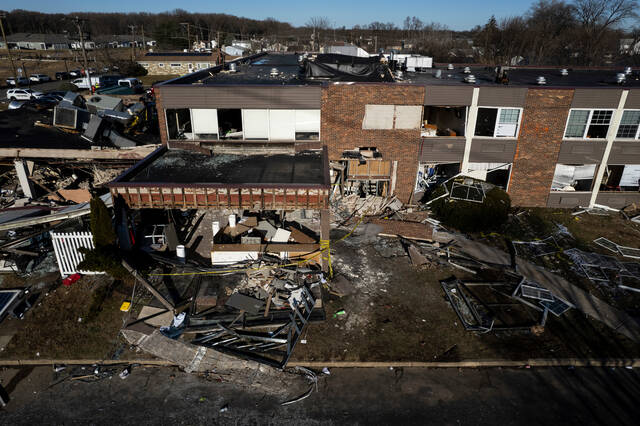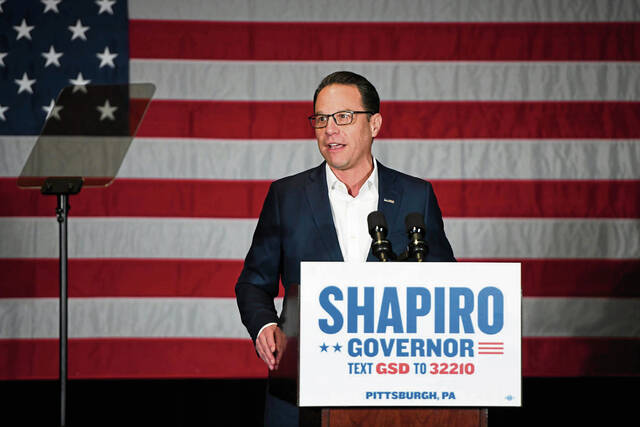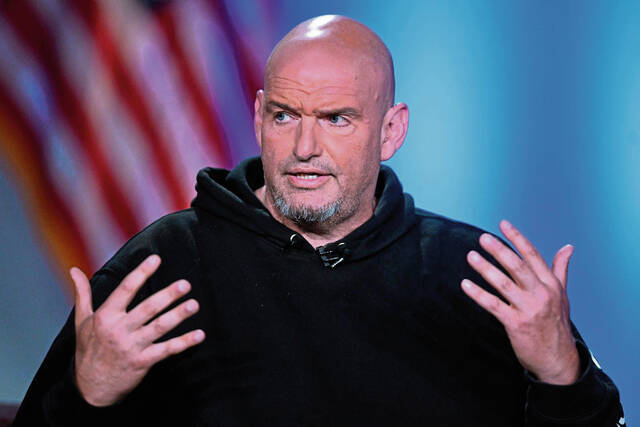Penn State University’s two law schools are withdrawing from participating in future U.S. News & World Report law school rankings, joining more than 40 peers who say the news organization’s methodology is seriously flawed.
Yale and Harvard universities announced they were withdrawing from participating in the rankings in November and others began following suit, including the University of Pennsylvania.
“For years, law school deans and faculty have been expressing concerns about the deeply flawed yet highly influential ranking of law schools published annually by U.S. News and World Report,” Justin Schwartz, Penn State’s interim executive vice president and provost, said in a statement.
Schwartz added: “Relying heavily on a subjective rating submitted by law school administrators and faculty as well as attorneys and judges, the rankings are more of a popularity contest based on perceived prestige, rather than a useful tool to help prospective students make a decision about where to pursue their legal education.”
Penn State Dickinson Law and Penn State Law in University Park “are active champions of excellence, justice, equity and inclusion, consistent with the land-grant mission of our university,” he said in a statement dated Friday. “The U.S. News rankings methodology is inconsistent with our schools’ core values of excellence in teaching, scholarship, service and community.”
The U.S. News rankings, not only of professional schools but of universities as a whole, have been hotly debated for decades. A number of medical schools have recently pulled back from the rankings.
The annual rankings’ sway with students is evident in schools that send out media releases when they do well, and in some cases, literally hang banners from their buildings announcing their placement.
In Pittsburgh, April Barton, dean and professor of law at Duquesne University’s Thomas R. Kline School of Law, said Wednesday her school continues to monitor the situation closely “with an eye on how these rankings influence students, future lawyers and the legal profession.”
The University of Pittsburgh law school, whose dean Amy Wildermuth resigned last month, to date has not comment.
The departure of Yale, Harvard and other top law schools that typically rank high drove much of the attention initially last fall. The movement comes at a time when the law admissions market, including in Pennsylvania, has grown more competitive.
As of this week, a blog post maintained by Spivey Consulting Group, which works in law school admissions, lists 41 law schools nationwide that have withdrawn from participating in the rankings. They also include Columbia, Northwestern, Duke, Stanford and Tulane universities.
The blog also links to dozens of other schools that so far are maintaining their policy to submit data to U.S. News for rankings purposes. They include Cornell University, the University of Chicago, the University of Cincinnati and the University of Florida.
Thomas J. Miles, dean at the law school at the University of Chicago, said rankings “fundamentally are an opinion” based on “innumerable and contestable design choices.”
He doubted that what his school offers can be captured in a ranking.
Still, in a note to students explaining his decision against pulling out, Miles said the law school’s aim is not to suppress opinions.
“Most of the data we supply to U.S. News are already public, and the rest is information we have no reason to withhold,” he wrote. “The rankings of academic institutions clearly have a readership, and we wish to prevent the use of inaccurate information.”
At the University of Wisconsin, law dean Dan Tokaji had a different take, saying the rankings run counter to efforts to keep its education accessible. He acknowledged some changes in methodology recently announced by U.S. News but expressed other concerns including those surrounding cost.
“Although we are glad that the expenditures-per-student metric is being eliminated, we are dismayed that student debt will not be part of the coming year’s U.S. News calculations, as it has been the past two years,” he said. “No debt metric is perfect, but eliminating it entirely ignores the value proposition at the forefront of many prospective students’ minds.”
His note, dated Jan. 31, referred to an effort announced earlier last month by U.S. News to address criticisms. It informed law deans that for the 2023-24 rankings, only data publicly available would be used and there will be methodology changes, including “reduced emphasis on the peer assessment surveys of academics, lawyers and judges, and an increased weight on outcome measures.”
It also extended the deadline for schools to participate to Jan. 27, according to a recent report from ABA Journal.
In late November, Penn State President Neeli Bendapudi cited an “extremely competitive” law admissions market in the state and a desire to better focus on Penn State’s resources, as she announced a plan to reunite the Dickinson and University Park law campuses into a single law school.
She defended the plan against criticism that ensued, including from some law faculty.
“Reuniting the two schools allows the university to advance legal education at Penn State and offer law students a more robust law school experience,” the university said in a statement. “With an extremely competitive marketplace for legal education and nine law schools in Pennsylvania, the university’s current two-law-school model is not the best approach for achieving excellence in legal education.”
The announcement did not mention rankings. Penn State Dickinson and Penn State Law at University Park recently tied for 58th and 64th place respectively, according to U.S. News.








